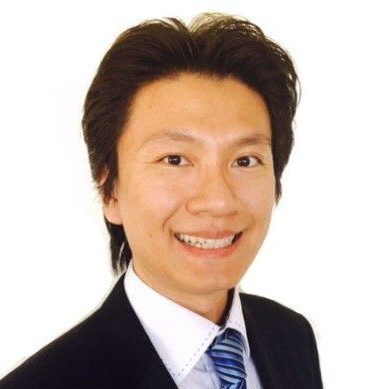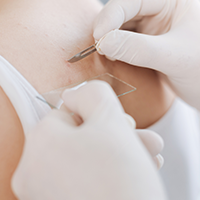Becoming an ACD approved Mohs specialist
To become an ACD approved Mohs specialist in Australia it is necessary to complete an accredited program of Mohs surgery training, either here in Australia or overseas, and hold both specialist recognition to practice as a dermatologist in Australia as well as FACD. A trained specialist Dermatologist must undertake a minimum of 1-2 years approved Mohs surgery training or equivalent Mohs Fellowship program and meet specific requirements.
The College publishes a list of ACD approved Mohs Specialist on its website.
The doctors on the ACD Approved Mohs Specialists register are both Fellows of the Australasian College of Dermatologists (FACD) and accredited Mohs Specialists. They adhere to the following benchmarks of quality by:
- Ensuring that 90% of Mohs cases are carried out in difficult sites including the head and neck, lower leg, hands, digits or anogenital area
- Maintaining practical skills by undertaking a minimum number of 50+ Mohs cases per year totalling not less than 150 over a 3-year period
- 13 or more section cases (MBS 31002 or 31005) should in volume terms make up the minority of practice.
- Participating in an annual quality assurance program in diagnostic dermatopathology run by the Royal Australasian College of Pathology Quality Assurance Program.
- Participating in the ACD Mohs group which sets professional standards for the practice of Mohs surgery in Australia under the auspices of the Australian Medical Council.
- Analysis of 2016-2018 Mohs group caseload data shows the mean number of cases per year was 300. The standard deviation was 200. Members of the group who carry out over 700 cases per year (2 SD above mean) should consider why their practice is different in terms of volume to the majority of colleagues. A reflective review of practice against current guidelines and peer practice should be undertaken. This benchmark will be reviewed annually and Mohs group results promulgated to all college members.
WHAT IS MOHS TRAINING?
Accredited Mohs Surgery Training is usually offered over a 12 month period to a maximum of 2 years.
Candidates develop detailed understanding of the clinical sciences that underpin the practices of Mohs surgery including anatomy, physiology and immunology, cutaneous oncology, histopathology and wound healing.
Candidates develop advanced competence in the identification and management of patients who should be treated by Mohs surgery, including those who need a multi-disciplinary approach with a number of other specialists.
Candidates become competent in all elements of Mohs surgery, including histopathological interpretation and reconstruction of surgical defects.
WHERE CAN I DO MOHS TRAINING?
In Australia, the Australasian College of Dermatologists is the peak body responsible for accrediting Mohs surgery training positions.
Mohs surgery training is undertaken in facilities accredited by the College National Accreditation Committee, with an appropriately qualified Supervisor of Training and other supervisors.
There are currently five accredited Mohs training positions:
| State | Program Location | Supervisor of Training | Training Position Information |
| NSW | The Skin Hospital, Westmead | Dr Simon Lee | Position Availability: February 2025 Accepting applications |
| QLD | North West Private Hospital, Everton Park | Dr Zoran Gaspar | Position Availability: February 2024 Accepting applications |
| WA | Oxford Day Surgery & Dermatology, Mount Hawthorn | Dr Paul Cherian | Position Availability: February 2025 Accepting applications |
| WA | South Perth Specialist Skin Cancer Centre, South Perth | Dr Tim Elliott | Position Availability: TBA |
| VIC | The Skin Health Institute, Carlton | Dr Timothy Rutherford | Position Availability: September 2024 Accepting applications |
(Note: All training positions are generally of 12 months duration and will have a nominated commencement date. Not all training positions will commence at the beginning of a calendar year.)
ELIGIBILITY
Fellows must meet one of the following criteria in order to be eligible to apply for inclusion on this list:
- ACD Fellowship and completion of ACD Mohs Surgery Training Program
- ACD Fellowship and completion of an American College of Mohs Surgery (ACMS) Fellowship Program
- FRACP Fellowship from New Zealand ONLY if obtained by undertaking the RACP Advanced Training in Dermatology qualification and completion of ACD accredited Mohs Surgery Training Program.
click here for Further information on FRACP
It is recommended that internationally trained dermatologists who wish to apply for a Mohs Surgery Training Position must first have their skills and experience assessed to establish that these are substantially comparable to that of an Australian trained dermatologist.
If the doctor is assessed as being not substantially comparable, he/she will need to undertake further upskilling in dermatology through the ACD Dermatology Training Program.
Once FACD has been obtained, you may apply for a Mohs Surgery Training Position.
How to apply
To apply for a position on the Mohs training Program you must complete the online application form.
Your application will then be assessed by the relevant Training Supervisor and the ACD Mohs Committee.
If your application is successful you will be informed on the training site and start time.
For training sites seeking accreditation of a Mohs training position please CLICK HERE TO APPLY
Fees
Testimonials



